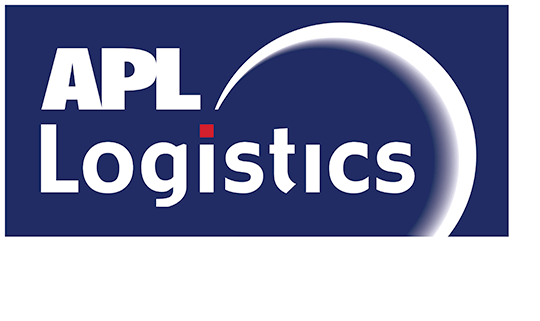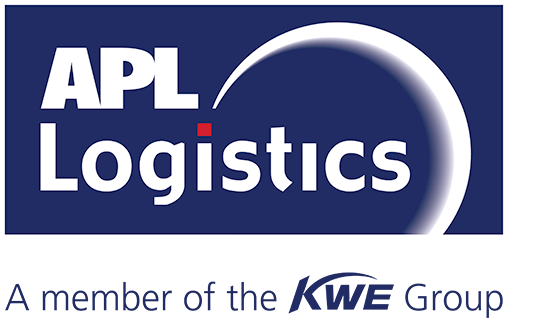March 14, 2022 in PODCASTS
Fast Forward – Sustainability Matters
The race to net-zero by 2050 is gathering pace, and sustainability is now a business imperative. In this episode, Eva James, our Senior Sustainability Specialist, shares how you can prioritize sustainability organization-wide.
April Chapman (Host): Hello, everyone. I’m April Chapman, your host. And I’m excited to welcome our guest, Eva James, to the podcast today. She helps lead our sustainability program and initiatives here at APL Logistics. Lately, we have been working together on a big project, and it’s been great getting to know her, I’m sure you will all enjoy this conversation.
Eva James: Hi everyone.
April Chapman: Let’s jump into our topic today, sustainability, and I want to talk to you to get your take on things. Big picture, can you describe where you think the supply chain industry and sustainability intersect?
REDUCE CARBON FOOTPRINT
Eva James: Both have just been shoved into the spotlight in the past two years since Covid hit. For the past 5 to 10 years, people have realized that sustainability will not go away. So, I think that this intersection also will not go away. It becomes apparent that installing LED light bulbs or putting solar panels on roofs is a drop in the bucket compared to the 80% to 90% of carbon emissions that come from just shipping stuff all over the globe.
The footprint is astronomical, and the pressure comes from investors and customers.
It comes to the point that they’re saying I want a product that has the smallest carbon footprint, maybe I don’t want it shipped from Siberia, or perhaps I want it shipped from down the road.
And that pressure is a good thing. In general, government entities or regulatory bodies want companies to reduce these emissions drastically. And this means our industry got to step it up.
I think at APLL, we are stepping it up, and we’re in a great position to do so because we’re trying to integrate sustainability into what we do. We’re integrating sustainability into our Order Management solutions and decision-making processes. We’re here to support the world’s top customers, retail consumers or producers to shift from shipping more to shipping more efficiently. So, it’s all about that environmental transparency.
April Chapman: Yeah, yesterday I was using an app for travel called TripIt. And now, at the bottom, when you’re planning your trips, it tells you what your carbon footprint is going to be for these different options. I was like, oh, that’s cool.
Eva James: You would be surprised how many people text me about that. They’re like, yeah, I was booking a flight on Google Flights and now that I can see this one emits 14% less carbon than that one, and that’s awesome. Maybe someday that will get to the shelf level, so when you buy a box of cereal, perhaps this box is a little bit greener than that box.
April Chapman: Well, that is interesting, I was listening to a podcast yesterday, and it was talking about how much the younger generation coming out of college is looking for those things.
When your buyers care, then everyone cares. That’s when the change happens because then, it starts impacting the companies, it starts impacting the choices.
THE RACE TO NET ZERO
April Chapman: In 2021, there was a survey conducted by the United Nations Global Compact, and it was a CEO study that was done on sustainability. This is an interesting statistic I read. 71% of respondents said they are actively developing a net-zero emissions target for their company. What do you think? Is net zero a realistic goal in our industry?
Eva James: I think net zero is the buzzword of the past two years or maybe, the past decade. It comes about because companies realize they can’t keep emitting so much, and it’s also going to be hard to cut those emissions directly. So, they need creative solutions. By 2050, that’s going to be a magic year. We’re going to have zero emissions by then with all these goals.
April Chapman: Write a goal. Well, there is truth. You can’t get to a goal unless you write it, but writing alone doesn’t get you there.
Eva James: Yeah, some people say this is the optimistic approach. It’s a great way to spark that fire or discussion. Most people understand net-zero or climate crisis by now. To do this well, it is easier to tackle or take smaller bites in thinking about how your company will reach net zero. In reality, we can’t say I’m going to fix climate change; I’m going to fix ocean acidification; I’m going to fix all these pollution problems. That’s not going to help.
Today, more than 130 governments and over 400 of the largest companies set net-zero targets for 2050.
Along this trajectory, we have to think about if that creates a problem that people will rely on offsets and other measures, or they delay the problem until 2050, which there might not be enough offsets for the world to rely on. On the other hand, some people say sustainability is completely unachievable for our industry which I disagree with.
I think that great advancements are being made. There’s a lot of work done. However, the question is, is it being done fast enough? Can it be done on the scale that we need? For a start, there are many talks about green shipping, alternative ships while converting an entire global fleet of ocean liners. Going back to your question, is it a realistic goal for our industry? I would say it’s an ambitious goal. Without them, we would just be continuing our status quo.
EVOLVING WITH TECHNOLOGY
April Chapman: Right, what’s that quote from Einstein? I think necessity is the greatest. It’s like the greatest push towards creativity, something like that. Do you know what I’m talking about?
Eva James: Yeah, like inventing the change. You always want people out there thinking innovatively and creatively to bring new solutions. Something could come out tomorrow that we’ve never even considered, and that could completely change the whole conversation.
April Chapman: That could be a game-changer, and we don’t know what those are, and we don’t know what those will be in ten or fifteen years. So even though we’re starting down that path, at some point, there can be some great innovations that will make sustainability a more achievable goal for everybody.
Eva James: That’s what a lot of people are banking on. They are banking on technology to evolve with the times and for us to sequester more carbon or at least be financially viable for us to pull carbon out of the atmosphere. Yeah, until that happens, sometimes you need a ray of hope and goals that people can try to achieve.
April Chapman: It reminds me of NASA because when they were trying to go to the moon, they had so many problems to solve and things they had to build and create that had never existed before. I’ve read articles on how those things made it to the market and are now part of our everyday lives. But it was all because of this one goal to get to the moon.
Eva James: Yeah, like what’s going to come out of this push? The positive collaterals.
TAKING AN ORGANIZATION-WIDE APPROACH
April Chapman: Exactly. It will be interesting to see. Okay, my final question for you today is how do you think sustainability should be implemented throughout an organization?
Eva James: Well, April, I think there is a real balance. In most cases, some believe you need a top-down approach. Everyone needs to be in line.
Another way to integrate sustainability is to engage every employee at every level, even the highest circles of leadership.
Employees need to understand and prioritize sustainability initiatives, and they need to be involved in the goal settings and understand the end game for the company.
Driving internal education and having your employees hold a conversation or understand things like what’s the scope three emissions, what’s the challenge we’re trying to tackle in our industry, not just at APLL, but anywhere.
More importantly, having that education extends throughout the company to help people change their whole mindset. If everyone’s on the same page and everyone realizes how important it is to cut carbon emissions, recycle a plastic container, or even start an office compost bin, for example. Those initiatives and those efforts do not go unnoticed, and those efforts, no matter what people say, you can’t discount them. So, while you need that larger direction from CEOs, CFOs, and COOs, you do need that grassroots push.
April Chapman: Right, you need the buy-in from the people working every single day. These are the faces of your company, for all the customers.
Eva James: Just like you need your customers to buy what you’re selling. You need your employees to believe in your mission your sustainability initiatives and understand that they can help make a difference, whether personally or being a part of this organization that is working to make the change.
April Chapman: I like to embrace change, and I want to encourage others to embrace change. But they have to understand the why. I think we have to do a good job of telling the true story of why and what people do matters and how they play an important role in that. So, I’ll be tapping into you more on this.
Eva James: April says that like she doesn’t ask me to join her on calls every day.
April Chapman: It’s the joys of working here, growing from people around you.
Eva James: I love that. I get to work with everyone at this company. I never dreamed that working in corporate sustainability would be so rewarding and eye-opening. This is a great job, and I recommend it to anyone looking for a career change or looking for some inspiration. I truly love my time at APLL, and I love everyone I work with, especially you, April.
April Chapman: What a positive show we’ve had today. Well, I’m so glad you joined us and thank you listeners, for joining us as well. We’ll see you next time.


